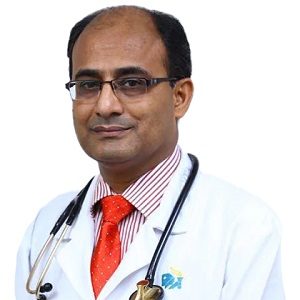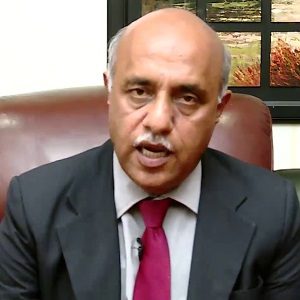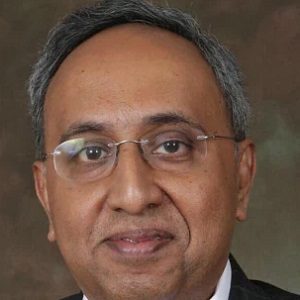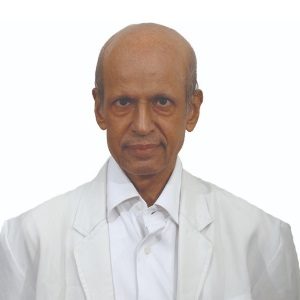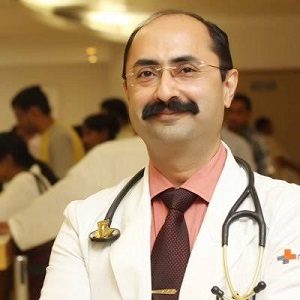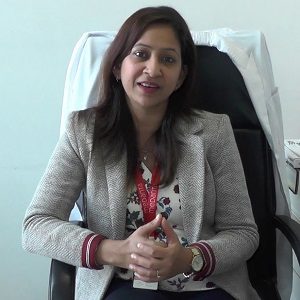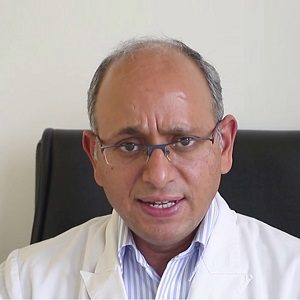Best Doctors in India for Pancreatectomy
- Endocrinologist and Diabetologist, Chennai, India
- Over 36 years’ experience
Profile Highlights:
- Dr. P G Sundararaman is one of the senior Endocrinologists in Tamil Nadu with an experience of 36 years in this field.
- Patients seek consultation for bioidentical hormone therapies for men and women, Thyroid Disorder Treatment, Gestational Diabetes Management, Growth Abnormalities, Endocrine Stem Cell Therapy, Lactation Counselling, etc.
- He keeps himself updated with the latest in the field by attending national and international conferences.
- Endocrinologist and Diabetologist, Chennai, India
- Over 26 years’ experience
Profile Highlights:
- Dr. Boochandran is one of the best Endocrinologists in Chennai, with 26 years of experience in diabetes and endocrinology.
- After completing his MBBS in Chennai, he went on to earn his Master’s degree from Kings College Hospital in London.
- Dr. Boochandran specializes in the treatment of hypothyroidism, obesity, parathyroid dysfunction, polycystic ovarian disease, and a variety of other endocrine gland disorders.
- Endocrinologist and Diabetologist, Chennai, India
- Over 38 years’ experience
Profile Highlights:
- Dr. Shantharam D is a renowned Endocrinologist & General Physician in Tamil Nadu, having 38 years of experience.
- The doctor has received many awards for teaching and service in the field. Dr. Shantharam keeps himself updated by attending workshops and conferences organized internationally or nationally.
- He is a faculty member for the PHFI’s certificate course in Evidence-Based Diabetes Management and the TN Government’s certificate course in Diabetes for practicing physicians, particularly those from rural Tamil Nadu.
- Endocrine Surgeon, Chennai, India
- Over 22 years’ experience
Profile Highlights:
- Dr. Sai Krishna Vittal is one of the best Endocrinologists in Tamil Nadu who practices at Apollo Hospital, Chennai.
- As a board-certified endocrinologist with more than two decades of experience, Dr. Vittal offers consultation and treatment for male & female sexual problems.
- He is also a professor at The Tamil Nadu Dr. MGR Medical University and The Royal College of Surgeons of Edinburgh.
- Endocrinologist and Diabetologist, Chennai, India
- Over 33 years’ experience
Profile Highlights:
- Dr. Sivagnana Sundaram, a renowned endocrinologist in Chennai, specializes in diabetes treatment for patients.
- With 33 years of experience, he is India’s first DNB-qualified endocrinologist.
- Dr. Sundaram offers Lactation Counselling, Goiter Treatment, Hyper and Hypo Thyroid Treatment, Diabetes Management, and Gestational Diabetes Management to name a few.
- Endocrinologist and Diabetologist, Chennai, India
- Over 16 years’ experience
Profile Highlights:
- Dr. Narayanan N K is a well-respected endocrinologist in Chennai, having practiced for more than 16 years.
- Dr. Narayanan received the best abstract prize for his research on non-invasive lateralization tactics in the treatment of primary hyperaldosteronism. His poster presentation on Familial adrenocortical carcinoma has awarded as the best at the BES conference.
- Several of Dr. Narayanan’s research works have appeared in peer-reviewed journals published domestically and abroad.
- Pediatric Endocrinologist, Gurugram, India
- Over 15 years’ experience
Profile Highlights:
- Dr. Sumeet Arora is a renowned pediatric endocrinologist in Gurugram who has completed a major part of her studies in New York and Tennessee.
- She is an American Board Certified practitioner who has managed puberty problems like irregular or absence of menstruation and PCOS in adolescent women, hypogonadism, type-1, and type-2 diabetes, adrenal disorders, thyroid disorders, pituitary tumors, Cushing syndrome, Obesity, and weight management, etc.
- Endocrinologist and Diabetologist, Gurugram, India
- Over 20 years’ experience
Profile Highlights:
- Dr. Jasjeet Singh Wasir has been the Director and Consultant at the Department of Endocrinology and Diabetology in Medanta-The Medicity Hospital in Gurugram.
- Under the umbrella and guidance of Dr. Ambrish Mithal, he has been an expert doctor treating patients suffering from PCOD, obesity, and thyroid disorders.
- Associate Director Endocrinology & Diabetology, Gurugram, India
- Over 10 years’ experience
Profile Highlights:
- Dr. Parjeet Kaur is an expert in treating patients with endocrine disorders, especially, diabetes, thyroid, and parathyroid disorders, PCOS, and obesity.
- Dr. Parjeet Kaur is being actively involved in extensive research and practice of Endocrinology and the sub specialties.
- Endocrinologist and Diabetologist, Gurugram, India
- Over 25 years’ experience
Profile Highlights:
- Dr. Sunil Kumar Mishra is an experienced Endocrinologist. His experience extends to pituitary disorders, metabolic disorders of calcium and phosphorus, and excessive hair growth patterns in women.
- He has worked both in the clinical arena and educational sector during his tenure of being a doctor.
Best Hospitals in India for Pancreatectomy
Rela Hospital, Chennai
- City: Chennai, India
Hospital Highlights:
- RIMC is a multi-specialty hospital in a sprawling area of 36 acres located in Chromepet, Chennai, Tamil Nadu, India.
- The facility has 450 beds including 130 critical care beds, 9 operating rooms, modern reference laboratories and radiology services, and is conveniently located near road, rail and air transportation.
- RIMC is led and managed by world-renowned physicians committed to healthcare.
- RIMC offers the broadest range of clinical care, education, and research. The hospital offers state-of-the-art technology and modern treatment facilities designed to provide health care at an affordable cost.
- Rela Institute is driven by patient needs, comfort and confidence.
CARE Hospitals, Hyderabad
- City: Hyderabad, India
Hospital Highlights:
- CARE Hospitals were established in the year 2000, by CARE Group.
- The multispecialty hospital has 435 beds, including 120 critical care beds, with an annual inflow of 180000 outpatients and 16,000 in-patients.
- The hospital provides specialty medical services in Cardiology, Cardiothoracic Surgery, Pediatric Cardiology, Pediatric Cardiothoracic Surgery, Neurology, Neurosurgery, Nephrology, and Urology.
- The hospital has the first dual source, 128 slice CT scanner (for high precision cardiac imaging) – the first of its kind in south India.
- The hospital offers a wide range of accommodation facilities for the convenience of its varied patient base, ranging from general wards to super deluxe rooms.
Fortis Hiranandani Hospital, Mumbai
- City: Mumbai, India
Hospital Highlights:
- Fortis Hiranandani hospital was established in 2007.
- The hospital is an advanced tertiary care, multi-specialty hospital equipped with 149 beds.
- The hospital is equipped with a super ICU to provide emergency medical care to critically ill patients.
- The hospital is NABH accredited.
- The critical care facility in the hospital is augmented with the state-of-the-art facilities that facilitate speedier diagnosis and efficient monitoring.
- The hospital provides specialty medical services in cardiology, orthopedic science, pediatric science, neurology, diabetic care, urology, nephrology, ENT, obstetrics, gynecology, cosmetic surgery, bariatric surgery, neuro and spine care.
Fortis Hospital, Anandpur, Kolkata
- City: Kolkata, India
Hospital Highlights:
- Fortis Hospital, Anandapur, Kolkata is a world-class super-speciality equipped with the latest technologies in the medical world.
- The hospital is NABH accredited.
- This state-of-the-art facility specializes in cardiology and cardiac surgery, urology, nephrology, neurosciences, orthopaedics, digestive care, emergency care and critical care.
- The hospital, governed by integrated Building Management System (IBMS), has a pneumatic chute system, for quick vertical and horizontal transportation between floors, facilitating speedy transfer of patient specimens, documents, reports, and medicines to the concerned departments.
- The hospital also has a nephrology department with over 28 advanced dialysis units.
Fortis Hospital Banerghatta, Bengaluru
- City: Bengaluru, India
Hospital Highlights:
- Fortis Hospital Bannerghatta, Bengaluru was established in 2006.
- The hospital is a 276 bedded multi-specialty tertiary care facility.
- The hospital specializes in cutting-edge medical technology and dedicated patient care services.
- The hospital is equipped with state-of-the-art technologies like trans-radial angioplasty, trans-abdominal cardiac surgery, and computerized TKR navigation surgery.
- The hospital provides specialty medical services in cardiology, cardiac surgery, orthopedics, neurology, neuro-surgery, GI, and Minimal Access Surgery (MAS).
Gleneagles Global Hospital, Parel, Mumbai
- City: Mumbai, India
Hospital Highlights:
- Gleneagles Global Hospital The 450-bed facility comprises of 17-stories, housing state-of-the-art infrastructure, and advanced medical care facilities.
- The hospital offers end-to-end clinical, surgical, and diagnostic services. It is equipped with a team of eminent medical professionals aided by qualified nurses and medical staff
- The Hospital offers advanced Endoscopic procedures, Hepatobiliary and Liver Surgeries, Surgical and Medical Gastroenterology, Bariatric Surgery, and Robotic surgery.
- The hospital is a center of excellence for Orthopedics, Joint Replacement, Knee Replacement, and Hip Replacement surgery.
Jaypee Hospital, Noida
- City: Noida, India
Hospital Highlights:
- Jaypee Hospital is the flagship hospital of the Jaypee Group.
- This hospital has commissioned 525 beds in the first phase and has been planned and designed as a 1200 bedded multi-specialty facility.
- It holds the accreditation of the NABH and NABL.
- The hospital has state-of-the-art infrastructure equipped with the latest technologies and modern equipment like 64 Slice PET CT, Dual Head 6 Slice SPECT CT, Gamma Camera, and Da Vinci Robotic Surgery for comprehensive robotic surgical solutions.
- It has special Centers dedicated to the major specialties to provide hassle-free and high-quality clinical care.
Manipal Hospital, Dwarka, Delhi
- City: New Delhi, India
Hospital Highlights:
- Manipal Hospitals, Dwarka, is a super-specialty hospital in Dwarka, New Delhi, which is a part of Manipal Hospitals Group.
- The hospital aims to provide the best treatment on par with international standards at a fraction of the cost.
- Equipped with 380 beds, the hospital is also one of the new age hospitals which are equipped fully with state-of-the-art infrastructure, cutting-edge technology as well as the latest and advanced clinical practices. The hospital also has 13 modular Operation theatres with 118 beds which are solely meant for critical care.
- The hospital comprises internationally acclaimed doctors and highly professional and experienced hospital and medical staff who are able to provide preventive, therapeutic, and diagnostic services all under one roof.
Paras Hospital, Gurugram
- City: Gurugram, India
Hospital Highlights:
- Paras hospital was established in 2006 and is the 250 bedded flagship hospital of Paras Healthcare.
- The is supported by a team of doctors of international and national repute.
- The hospital is NABH accredited and also the first hospital in the region to have a NABL accredited laboratory.
- The hospital provides specialty medical services in around 55 departments including Neurosciences, Joint Replacement, Mother & Child Care, Minimal Invasive Surgery, Gynecology and Obstetrics, Ophthalmology, Dermatology, Endocrinology, Rheumatology, Cosmetic and Plastic surgery.
- The hospital is equipped with state-of-the-art technologies.
S L Raheja Hospital, Mahim, Mumbai
- City: Mumbai, India
Hospital Highlights:
- SL Raheja hospital is a 140-bed multi-specialty tertiary care hospital that is being managed by Fortis Healthcare Ltd.
- The hospital is a benchmark in healthcare and medical facilities in the neighborhood of Mahim & the western suburbs.
- L.Raheja Hospital, Mahim has one of the most effective ICU and Casualty care services.
- The hospital provides specialty medical services in Cardiology, Oncology, Neurology, Orthopedics, Mother & Child Care, and in Diabetes.
Pancreatectomy
Pancreatectomy is the surgical removal of your pancreas. The pancreas is an important organ of your body and its functions are secreting digestive juices. It also secretes insulin and glucagon which are important for controlling blood sugar.
If a total pancreatectomy is being done, the organ is removed entirely. It is removed generally along with the gallbladder, spleen, common bile duct and portions of the small intestine and the stomach. In some cases, the procedure can also be distal, which means that only the body and tail of the pancreas are removed and the head of the organ remains attached.
Purpose
A pancreatectomy is considered the most effective treatment for cancer of the pancreas, your abdominal organ which secrets digestive enzymes, insulin as well as other hormones.
When the pancreas has been severely injured by trauma, especially bodily injury then a partial pancreatectomy might be recommended. Such a surgery generally leaves minimal side effects.
Pancreatectomy is also the preferred treatment for another condition known as chronic pancreatitis. Chronic pancreatitis can result in the organ getting damaged permanently. This condition can result from alcohol abuse or the presence of gallstones. In most patients, with alcohol-induced disease, where the pancreas is widely involved and therefore, surgical correction is nearly impossible.
Preparation
If you are suffering from symptoms of a pancreatic disorder, you may undergo several tests before your doctor considers surgery. These tests can include ultrasonography, CT scan, angiography or ERCP. These tests are important to diagnose your condition properly so that the surgery can be planned properly.
Talk with your doctor and discuss if you need to avoid certain medications. Make sure you refrain from smoking for some days before and after your surgery.
Procedure
A pancreatectomy can be performed through an open surgery technique, in which one large incision is created. Sometimes the procedure might also be done laparoscopically, in which the surgeon can make four small incisions to insert the surgical instruments. The abdomen is then filled with gas, usually carbon dioxide for helping the surgeon view the abdominal cavity.
Next, a camera is inserted through one of the tubes and it displays images on a monitor in the operating room. Other instruments are placed through the additional tubes as well. The laparoscopic approach can allow the surgeon to work inside the patient’s abdomen without the need for a large incision.
If the pancreatectomy required is partial, the surgeon clamps and then cuts the blood vessels, after which the pancreas is stapled as well as divided for removal.
If the pancreatectomy required is in total, your surgeon will be removing the entire pancreas and attached organs. He/she begins by dividing and detaching the end of the stomach, the part which leads to the small intestine, where the pancreas and bile ducts both attach.
In the next step, he/she will be removing the pancreas along with the connected section of your small intestine. The common bile duct is removed as well as the gall bladder. For reconnecting the intestinal tract, the stomach and the bile duct are then reconnected to the small intestine.
Recovery
After the recovery, you might need to stay at the hospital for one to three weeks. You might require the following:
- Abdominal drains for draining extra fluid
- Bladder catheter for emptying urine from the bladder
- Nasogastric tube placed into your nose and down
Depending on the situation, you might also be requiring the following:
- Epidural tube for delivering pain medications
- Feeding tube placed into your stomach for providing nutrition
While you leave the hospital, you might be leaving with some of these drains or tubes. Your healthcare team will provide you specific instructions regarding your diet after your surgery.
Recovery should take around one or two months. You can discuss with your health provider about activity restrictions while you are at your home. Often it is recommended that you walk as much as possible. Remember not to drive while you are taking narcotic medications for pain.
Try to avoid heavy lifting, pushing, twisting, bending or pulling. Eat small and frequent meals. You should also prevent constipation by drinking fluids or taking stool softeners. If insulin is required, take it as directed.


